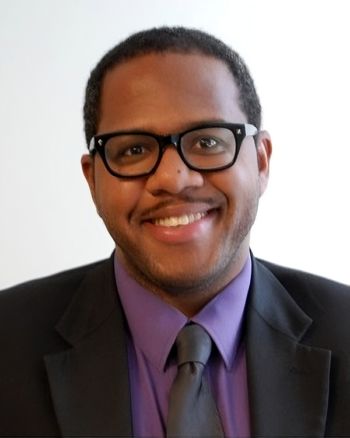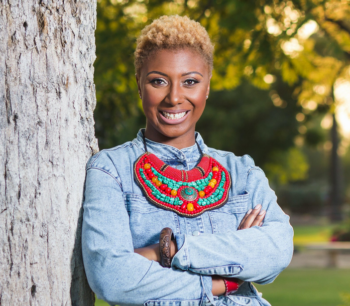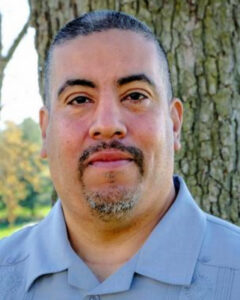Janine Jackson: Welcome to The Best of CounterSpin 2024. I’m Janine Jackson.
This is the time of year when we take a listen back to some of the conversations that have helped us clarify the events that bombard us, in part, by showing how elite news media are clouding them. It’s not to say big media always get the facts wrong, but that what facts they point us toward day after day, whose interpretation of those facts they suggest we credit, what responses we’re told are worth pursuing—all of that serves media’s corporate owners and sponsors, at the expense of the rest of our lives and our futures.
An important part of the work we do as producers and as listeners is to help create and support different ways to inform ourselves and to stay in conversation. As always, we are deeply thankful to all of the activists, researchers, reporters and advocates who appear on the show. You’re listening to CounterSpin, brought to you each week by the mediawatch group FAIR.
***
2024 included many reasons for public protest, which our guest reminded is both a fundamental right and a core tool for achieving other rights. Journalist and activist Chip Gibbons is policy director at Defending Rights and Dissent.

Chip Gibbons: “There’s always been what’s called a Palestine exception to free speech.”
Chip Gibbons: And I think it’s hard to talk about the future of dissent in this country this year without talking about what’s happening in Gaza, because that looms over everything. And we’re seeing a real outburst of protest around the ceasefire, around the occupation, around apartheid. And we’re also seeing a real heavy-handed attempt to demonize and repress these movements.
There’s always been what’s called a Palestine exception to free speech. Palestine supporters have been censored, jailed, spied on for decades. So this isn’t entirely new, but the level of public vitriol, where you have Congress passing resolutions condemning student groups, Congress passing resolutions that condemn university presidents, Congress calling on the FBI (this isn’t a resolution, these are just letters from individual members of the Congress) to investigate media outlets for these conspiracy theories that they had freelancers who—and mainstream ones, like New York Times; they’re not talking about small left-wing publications—were somehow involved in October 7.
It’s a really dark time, and I know a lot of people I talk to feel very strongly that the repression will backfire, because the movement is so strong, and people are so disgusted by what our government is complicit in. And I think that’s potentially true.
But I do have to caution: Before World War I, the left was very powerful in this country. The Socialist Party had members of Congress, they had mayors. And the repression of that war completely decimated them.
In the run-up to the Cold War, the FBI had all these internal files about how powerful they think the Communist Party is, that people are taking them seriously, that liberals work with them, that the 1930s were a pink decade or a red decade, and the FBI security apparatus is going to be like penicillin to the spread of the pink decade.
So a lot of the periods of repression have followed the left when it was at its strongest, not when it was at its weakest. And I’m not saying we’re going to be decimated, like we were during World War I or during McCarthyism, but I do think we should be cautious, that repression does have an impact, and it does follow popular movement successes.
And I do think part of the reason why we see this unhinged level of repression around the Gaza War—if you want to call it war; it’s more of a genocide—is because the atrocities that are being committed are so horrifying that, even if you’re someone who doesn’t think Israel’s an apartheid state, even if you’re a centrist, it’s hard to watch and hear about hospitals being targeted, to hear about refugee camps being blown up, and not be morally repulsed by what you’re seeing.
And I do think that people know that, and that’s why they’re escalating the ratcheting up of oppression around the ceasefire protest. Because there’s no defense of bombing a refugee camp. There’s no defense of having snipers outside a Catholic church and shooting church women who are going to use the restroom. There’s not really a strong defense of this. You can either deny it, or try to shut everyone up.
***
JJ: Svante Myrick is president of People for the American Way, and former mayor of Ithaca, New York. We spoke with him about voting rights and roadblocks.
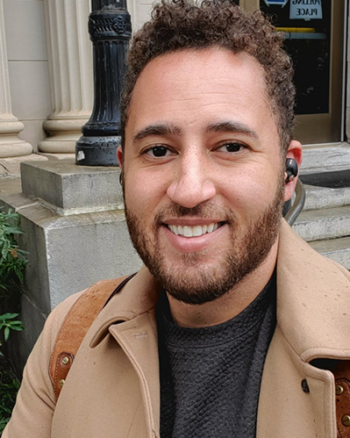
Svante Myrick: “They’re not trying to take away everyone’s right to vote. They’re trying to take away certain people’s right to vote.”
Svante Myrick: Especially after the 2020 election, led by Donald Trump, state legislators—people who are not household names, folks that you won’t often see on CNN or MSNBC—state legislators are taking their cues from Donald Trump and passing dozens and dozens…. I just came from Utah, where yet another law was passed that makes it harder to vote.
Utah used to have very good voting laws. Everybody got a ballot in the mail. You could just fill it out, send it back in. You had weeks and weeks to do it. They just repealed that. Why? Is it because Donald Trump lost Utah? No, it’s because the state legislators are trying to curry favor with a president that just, frankly, does not want everyone’s vote to count.
And if it’s OK, if I just say what probably is obvious to many of your listeners, but I think it deserves to be said: They’re not trying to take away everyone’s right to vote. They’re trying to take away certain people’s right to vote. I’m a Black American, and I just know for a fact that this Trump-led faction of the Republican Party would love for Black Americans’ votes not to be counted. And I know that because they are moving with almost surgical precision to disenfranchise people like me and my family.
JJ: I am surprised when people are surprised that people don’t vote. While I lament it, I see the fact that some people just don’t see a connection between this lever they pull, and the policies and laws governing their lives. I see that as an indictment of the system, and not of the people.
And so I wanted to ask you to talk about what we’ve seen labeled “low-propensity voters,” and different responses, like what People For is talking about, responses that are better than saying, “These people are so dumb, they don’t even know how to vote their own interests.”
SM: And that’s so well said. Certainly our system has failed in many ways. But extreme right-wingers have also been waging an 80-year war, maybe longer, to convince Americans that government does nothing for them, that their representatives don’t improve their lives. And so when they do things like starve schools and school budgets, starve road budgets so that there are potholes in the street, and try to shrink government down to a size where you can drown it in a bathtub, they make sure it is dysfunctional, from Reagan to George W. Bush to Donald Trump, they break the system, and then say, “Hey, see, government, it can’t work at all. Why bother? Why bother to vote at all?”
***
JJ: Though it’s dropped from many outlets’ radar, police violence continued in 2024, but so did efforts to reimagine public safety without cops at the center. Monifa Bandele is an activist with Movement for Black Lives, as well as senior vice president and chief strategy officer at MomsRising. She talked about a new report mapping police violence.
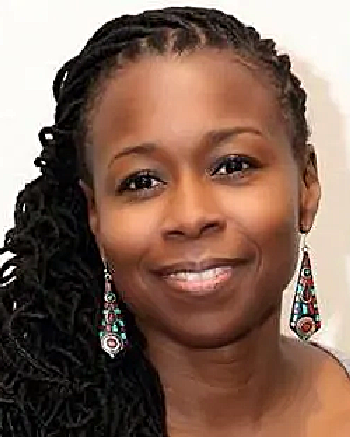
Monifa Bandele: “We actually know what keeps us safe. We know that people need care and not punishment.”
Monifa Bandele: Black people are just like any other people, right, all over the world. And so, for a long time, people had no idea what options there could be, what alternatives there could be, for community safety other than policing.
It’s not just presented in our policies and what we see on the streets, we’re fed a daily dose of it in our larger popular culture. The police shows, the true crime series. All of your favorite actors at some point have been on the policing shows, or even if it’s shows about “gangsters” or “criminals,” it really has what we call this copaganda—which is police propaganda—storyline, which ultimately says, you need police, you need vigilantes, you need this tough-on-crime entity in order to have some semblance of safety in your community.
So I’m actually really proud and impressed in the Black community, because what our report shows is that, even though we are really bombarded, millions and millions of dollars are spent to convince people that this is the only way that you can get safety, and people have lived their entire lives only experiencing this one model, that large portions of our community are really questioning that, and are really listening to folks who are saying: “Hey, we actually know what keeps us safe. We know that people need care and not punishment.”
And this is something that, while we do it sometimes in our buildings and in our tenant associations or in our families, this could be scaled up community-wide. This could be scaled up citywide, statewide, nationally, where we actually figure out and get to the root of violence. You prevent most of it from happening, because you have the right mechanisms in place. And then when people are in crisis, and may cause harm to themselves or others, we combat that by giving them what they need to not be in crisis in that moment.
***
JJ: Immigration stayed critical in 2024, but we didn’t hear much from folks particularly on the US southern border who don’t support aggressive unto lethal state responses. Aron Thorn joined us from the Rio Grande Valley. He’s senior staff attorney at the Beyond Borders program of the Texas Civil Rights Project.
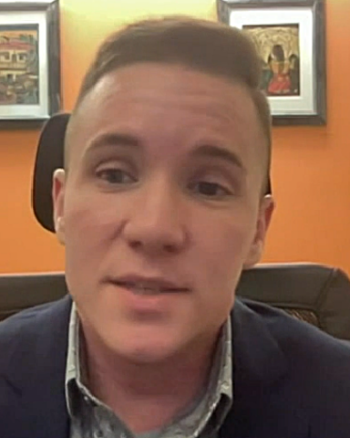
Aron Thorn: “The very vast majority of folks who are showing up to the US/Mexico border are folks who are in need of protection.”
Aron Thorn: I think one angle of this story that we don’t always see, it’s been heartbreaking to see, for example, the state’s rhetoric of “come and cut it,” be very aggressive, “we have a right to defend ourselves,” etc., etc. The, in my opinion, overblown claims about just how many cartel members are among people, just how many drugs they’re finding on people, for example.
The very vast majority of folks who are showing up to the US/Mexico border are folks who are in need of protection, they’re in need of safety, they’re in need of stability. That is the very vast majority of people.
And so something that does not often show up in these stories, that is particularly pertinent right now, is, let’s be clear, Texas is fighting for its right to lay concertina wire so that people can get caught in it for hours, and get injured and languish there as punishment for trying to seek safety.
And what they want to do is push people back into Mexico where they are kidnapped, assaulted, raped, worse, as punishment for wanting to seek safety. That is what Texas is asserting its right to do. That’s what the Trump administration’s primary goal was on the US/Mexico border. That’s what Greg Abbott’s primary goal is at the US/Mexico border. And we don’t talk about that, as a country, of what that actually looks like every day, what that looks like on the ground.
What we talk about are US communities, we talk about people “taking our jobs,” we talk about the fentanyl that’s coming in—all real issues that are not touched, not controlled, by people who are desperate and are trying to seek safety. So to me, that is one of the biggest holes that I always see in these stories, that we don’t really take: our right to defend our border, but from what?
As a Texan, I don’t think what Texas is doing on the border day-to-day will actually improve the lives of Texans. We are spending billions of dollars of our own tax money for this political ploy that we are improving the lives of Texans, while we are stripping Texans off of Medicaid faster than any other state in the country. Texans are very strapped in an economy where inflation is still an issue, and nothing that we’re doing at our border is going to affect that.
***
JJ: Media Matters took a look at coverage of climate disruption, finding that, where there were some improvements, they just didn’t match the severity of the crisis. Evlondo Cooper is a senior writer with the Climate and Energy Program at Media Matters.
Evlondo Cooper: “Even the best coverage we see…there is no accountability for the fossil fuel industry and other industries that are driving the crisis.”
Evlondo Cooper: We look at coverage of, broadly, climate justice. I think a lot of people believe it’s representation for representation’s sake, but I think when people most impacted by climate change—and we’re talking about communities of color, we’re talking about low-income communities, we’re talking about low-wealth rural communities—when these folks are left out of the conversation, you’re missing important context about how climate change is impacting them, in many cases, first and worse. And you’re missing important context about the solutions that these communities are trying to employ to deal with it. And I think you’re missing an opportunity to humanize and broaden support for climate solutions at the public policy level.
So these aren’t communities where these random acts of God are occurring; these are policy decisions, or indecisions, that have created an environment where these communities are being most harmed, but least talked about, and they’re receiving the least redress to their challenges. And so those voices are necessary to tell those stories to a broad audience on the corporate broadcast networks.
JJ: Yes, absolutely.
Another finding that I thought was very interesting was that extreme weather seemed to be the biggest driver of climate coverage, and that, to me, suggests that the way corporate broadcast media are coming at climate disruption is reactive: “Look at what happened.”
EC: Totally.
JJ: And even when they say, “Look at what’s happening,” and you know what, folks pretty much agree that this is due to climate disruption, these houses sliding into the river, it’s still not saying, “While you look at this disaster, know that this is preventable, and here is who is keeping us from acting on it and why.”
EC: Yeah, that is so insightful, because that’s a core critique of even the best coverage we see, that there is no accountability for the fossil fuel industry and other industries that are driving the crisis. And then there’s no real—solutions are mentioned in about 20% of climate segments this year. But the solutions are siloed, like there are solution “segments.”
But to your point, when we’re talking about extreme weather, when you have the most eyeballs hearing about climate change, to me, it would be very impactful to connect what’s happening in that moment—these wildfires, these droughts, these heat waves, these hurricanes and storms and flooding—to connect that to a key driver, fossil fuel industry, and talk about some potential solutions to mitigate these impacts while people are actually paying the most attention.
***
JJ: The oft-heard phrase “crisis of journalism” means different things to different people. This year, the Annals of the American Academy of Political and Social Science ran an article, “Repairing Journalism’s History of Anti-Black Harm.” It was co-authored by our guests, Collette Watson, co-founder of the group Black River Life, and Joe Torres, senior advisor at the group Free Press. The two are co-founders of the Media 2070 project.
Colette Watson: “What’s missing is an acknowledgement of our media system’s history of harm.”
Collette Watson: What’s missing is an acknowledgement of our media system’s history of harm. And when we talk about that—Joe and I are both co-creators of the Media 2070 project—when Media 2070 talks about this, we often say that, similar to our education system and our legal system, which so many people understand as oppressive, our media system is rooted in anti-Blackness, and in racism and racial hierarchy, since the very beginning.
When you look at the earliest colonial newspapers, which stayed afloat on the revenues that they were gaining from serving as brokers in the trafficking of enslaved African people, by not only posting ads, paid ads, for people who had emancipated themselves and run away, but also in the sales of enslaved folks and serving as a broker for those transactions.
We know that from that earliest root, right on through till now, our system of news, information, journalism—even entertainment media, book publishing—all of those are interconnected, and have been rooted in upholding a myth of Black inferiority, and have actually perpetuated white supremacy and even white nationalism. So you have to have that in mind, whenever you are thinking about journalism and the role it has played in society, and the role that we want it to play in the safe, just, multiracial democracy we want in the future. We can’t achieve that without acknowledging the history of harm.
Joseph Torres: “We’re asking the question: When hasn’t journalism been in crisis for Black people, and when hasn’t democracy?”
Joseph Torres: There is this big debate happening right now about the future of journalism, and how it goes, is mostly a white-led space. And the way the discussion has taken place is, the democracy is in crisis and so is journalism, and we need to save local journalism to save democracy. But as Collette is describing, what that does not acknowledge is the role of local news organizations and in local journalism in undermining democracy for Black people and people of color.
At the Media 2070 project, we’re asking the question: When hasn’t journalism been in crisis for Black people, and when hasn’t democracy? And these media institutions have played a direct role in undermining democracy.
And in recent years, we have the Los Angeles Times apologizing for it being the paper of white supremacy for at least its first 80-plus years. We have the Oregonian saying that it was a paper, when it began, to try to ensure that Oregon remained a white state. The Baltimore Sun apologizing for its role in upholding the housing segregation in its editorials in the newspaper in support of it in Baltimore; and the Kansas City Star did much the same. The Philadelphia Inquirer apologized.
These are all just within recent years, and within the future of journalism debate, there isn’t even acknowledgement that this actually happened, that these papers have actually apologized. What are we creating that’s different?
***
JJ: Throughout the year, more and more entities declared Israel’s violent assaults on Palestinians a genocide. But how did elite US media talk about it? Greg Shupak of the University of Guelph-Humber in Toronto, and author of The Wrong Story: Palestine Israel and the Media, talked with CounterSpin.
Gregory Shupak: “Genocide can and should never be just a normal story, but that is very much what it’s being treated like.”
Gregory Shupak: First of all, genocide can and should never be just a normal story, but that is very much what it’s being treated like. And second of all, it’s also: Yes, brutal, violent oppression of Palestinians has been the case since Israel came into existence in 1948, and, in fact, in the years leading up to it, there were certainly steps taken to create the conditions for Israel. So it is a decades-old story. But there is a kind of hand-waving that creeps into public discourse, and I think does underlie some of this lack of attention to what continues to happen in Gaza and the West Bank.
In reality, this is a very modern conflict, right? It’s a US-brokered, settler-colonial insurgency/counterinsurgency. It’s got very little to do with religion and everything to do with geopolitics and capitalism and colonialism. But it’s easier to just treat it as, “Oh, well, these backwards, savage barbarian and their ancient, inscrutable blood feuds are just doing what they have always done and always will. So that’s not worthy of our attention.” But that, aside from being wildly inaccurate, just enables the slaughter and dispossession, as well as resistance to it, to continue.
***
JJ: As we all reeled from the presidential election results, I talked with FAIR’s own editor, Jim Naureckas, and senior analyst Julie Hollar, for some thoughts about how we got here.
Jim Naureckas: “Trump was able to piggyback on a picture that had already been painted for him by corporate media, that these immigrants are something you should be afraid of.”
Jim Naureckas: I think that there’s an interesting parallel between the Trump campaign strategy and the business strategy of corporate media; there was kind of a synergy there. I don’t think that MAGA Republicans and corporate media have the same goals, necessarily, but I think they share a strategy, which is “fear sells.”
And that is also the strategy that Donald Trump has hit on. His campaign ads were all about fear, all about the danger of Democrats and the Biden/Harris administration. And he played on a lot of issues that corporate media have used to sell their papers, to sell their TV programs.
Immigration is one of the most obvious ones: Corporate media have treated immigration as, “Here’s something that you should be afraid about. There’s this flood of immigrants coming over the border. It’s a border crisis.” Particularly since the beginning of the Biden administration, this has been a drumbeat.
And there’s been a lot of distortions of numbers, of presenting this as some kind of unprecedented wave of migrants, that is not true. But by presenting it as this brand new threat, they’re able to sell more papers than they would otherwise have done—or sell clicks, I guess is what they’re in the business of now.
And so Trump was able to piggyback on a picture that had already been painted for him by corporate media, that these immigrants are something you should be afraid of. And he was the person who was promising to do something about them.
Julie Hollar: “Journalism is absolutely critical for democracy, and we have to remember that moving forward.”
Julie Hollar: I was thinking about how the corporate media, to me, bear such responsibility on both the issues of immigration and trans rights, because those two issues are miscovered by the corporate media in a very similar way. They’re both this beleaguered, very small minority—although the right wing, of course, is trying to make everyone believe that they are not a small minority, either of them—but both are very small minorities who are the target of these really punitive campaigns, whose bottom-line goal really is eliminating them from our society, which is classic fascism.
So you would expect journalists in a democratic society to take as the central story here that targeting of these minority groups. For the past many years, they should have been reporting these issues from the perspective of immigrants, from the perspective of trans people, humanizing them, providing us with this understanding of who’s really being harmed here, which is the opposite story of what the right wing is trying to tell.
And by not doing that at all—and I should also interrupt to say that not every corporate media outlet has been doing that on trans issues; the New York Times does really stand out, in terms of being bad about this. On immigration, it’s pretty much across the board bad in corporate media.
But instead of doing the kind of democratic journalism that you need in a moment like this, you have them really just feeding into the same narrative that the right-wing movement is putting out there. So when they then turn around—well, I’m getting ahead of myself—and then blame the left for these losses, it’s very angering.
Journalism is absolutely critical for democracy, and we have to remember that moving forward. And I think we can’t just ignore the big corporate outlets and let them off the hook and say, “Well, write them off because they’re never going to get better.” I mean, there are structural issues that are going to always limit them, and we have to keep demanding better, always.
And at the same time, I think it’s really important that everybody dig deep and support tough, strong, independent journalism that exists all over this country. Local outlets, wherever you are, that are doing really important work in your city or in your neighborhood, all of the independent media that are working nationwide as well, all the media critics; everyone is going to need so much support for the coming years to help defend this democracy, and we all really need to step up and support them.
***
JJ: That was FAIR’s Julie Hollar and Jim Naureckas. Before them, you heard Greg Shupak, Collette Watson and Joe Torres, Evlondo Cooper, Aron Thorn, Monifa Bandele, Svante Myrick and Chip Gibbons, just some of the voices it’s been our pleasure to bring you this past year.
This content originally appeared on FAIR and was authored by Janine Jackson.
Janine Jackson | Radio Free (2025-01-08T16:58:23+00:00) ‘Media Institutions Have Played a Direct Role in Undermining Democracy’: Transcript of The Best of CounterSpin 2024. Retrieved from https://www.radiofree.org/2025/01/08/media-institutions-have-played-a-direct-role-in-undermining-democracy-transcript-of-the-best-of-counterspin-2024/
Please log in to upload a file.
There are no updates yet.
Click the Upload button above to add an update.
